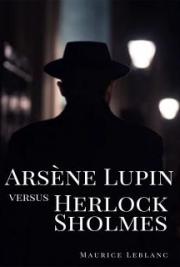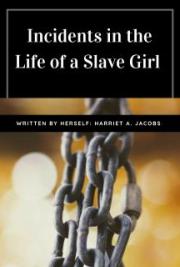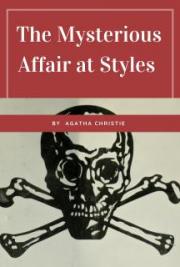Chapter 36
Francis and Margaret sat in the rose garden on the following morning. Their conversation was a little disjointed, as the conversation of lovers in a secluded and beautiful spot should be, but they came back often to the subject of Sir Timothy.
"If I have misunderstood your father," Francis, declared, "and I admit that I have, it has been to some extent his own fault. To me he was always the deliberate scoffer against any code of morals, a rebel against the law even if not a criminal in actual deeds. I honestly believed that The Walled House was the scene of disreputable orgies, that your father was behind Fairfax in that cold-blooded murder, and that he was responsible in some sinister way for the disappearance of Reggie Wilmore. Most of these things seem to have been shams, like the fight last night."
She moved uneasily in her place.
"I am glad I did not see that," she said, with a shiver.
"I think," he went on, "that the reason why your father insisted upon Lady Cynthia's and my presence there was that he meant it as a sort of allegory. Half the vices in life he claims are unreal."
Margaret passed her arm through his and leaned a little towards him.
"If you knew just one thing I have never told you," she confided, "I think that you would feel sorry for him. I do, more and more every day, because in a way that one thing is my fault."
Notwithstanding the warm sunshine, she suddenly shivered. Francis took her hands in his. They were cold and lifeless.
"I know that one thing, dear," he told her quietly.
She looked at him stonily. There was a questioning fear in her eyes.
"You know--"
"I know that your fattier killed Oliver Hilditch."
She suddenly broke out into a stream of words. There was passion in her tone and in her eyes. She was almost the accuser.
"My father was right, then!" she exclaimed. "He told me this morning that he believed that it was to you or to your friend at Scotland Yard that Walter had told his story. But you don't know you don't know how terrible the temptation was how--you see I say it quite coolly--how Oliver Hilditch deserved to die. He was trusted by my father in South America and he deceived him, he forged the letters which induced me to marry him. It was part of his scheme of revenge. This was the first time we had any of us met since. I told my father the truth that afternoon. He knew for the first time how my marriage came about. My husband had prayed me to keep silent. I refused. Then he became like a devil. We were there, we three, that night after you left, and Francis, as I live, if my father had not killed him, I should have!"
"There was a time when I believed that you had," he reminded her. "I didn't behave like a pedagogic upholder of the letter of the law then, did I?"
She drew closer to him.
"You were wonderful," she whispered.
"Dearest, your father has nothing to fear from me," he assured her tenderly. "On the contrary, I think that I can show him the way to safety."
She rose impulsively to her feet.
"He will be here directly," she said. "He promised to come across at half-past twelve. Let us go and meet him. But, Francis--"
For a single moment she crept into his arms. Their lips met, her eyes shone into his. He held her away from him a moment later. The change was amazing. She was no longer a tired woman. She had become a girl again. Her eyes were soft with happiness, the little lines had gone from about her mouth, she walked with all the spring of youth and happiness.
"It is marvellous," she whispered. "I never dreamed that I should ever be happy again."
They crossed the rustic bridge which led on to the lawn. Lady Cynthia came out of the house to meet them. She showed no signs of fatigue, but her eyes and her tone were full of anxiety.
"Margaret," she cried, "do you know that the hall is filled with your father's luggage, and that the car is ordered to take him to Southampton directly after lunch?"
Margaret and Francis exchanged glances.
"Sir Timothy may change his mind," the latter observed. "I have news for him directly he arrives."
On the other side of the wall they heard the whinnying of the old mare, the sound of galloping feet from all directions.
"Here he comes!" Lady Cynthia exclaimed. "I shall go and meet him."
Francis laid his hand upon her arm.
"Let me have a word with him first," he begged.
She hesitated.
"You are not going to say anything--that will make him want to go away?"
"I am going to tell him something which I think will keep him at home."
Sir Timothy came through the postern-gate, a moment or two later. He waved his hat and crossed the lawn in their direction. Francis went alone to meet him and, as he drew near, was conscious of a little shock. His host, although he held himself bravely, seemed to have aged in the night.
"I want one word with you, sir, in your study, please," Francis said.
Sir Timothy shrugged his shoulders and led the way. He turned to wave his hand once more to Margaret and Lady Cynthia, however, and he looked with approval at the luncheon-table which a couple of servants were laying under the cedar tree.
"Wonderful thing, these alfresco meals," he declared. "I hope Hedges won't forget the maraschino with the melons. Come into my den, Ledsam."
He led the way in courtly fashion. He was the ideal host leading a valued guest to his sanctum for a few moments' pleasant conversation. But when they arrived in the little beamed room and the door was closed, his manner changed. He looked searchingly, almost challengingly at Francis.
"You have news for me?" he asked.
"Yes!" Francis answered.
Sir Timothy shrugged his shoulders. He threw himself a little wearily into an easy-chair. His hands strayed out towards a cigarette box. He selected one and lit it.
"I expected your friend, Mr. Shopland," he murmured. "I hope he is none the worse for his ducking."
"Shopland is a fool," Francis replied. "He has nothing to do with this affair, anyway. I have something to give you, Sir Timothy."
He took the two papers from his pocket and handed them over. "I bought these from John Walter the day before yesterday," he continued. "I gave him two hundred pounds for them. The money was just in time. He caught a steamer for Australia late in the afternoon. I had this wireless from him this morning."
Sir Timothy studied the two documents, read the wireless. There was little change in his face. Only for a single moment his lips quivered.
"What does this mean?" he asked, rising to his feet with the documents in his hand.
"It means that those papers are yours to do what you like with. I drafted the second one so that you should be absolutely secure against any further attempt at blackmail. As a matter of fact, though, Walter is on his last legs. I doubt whether he will live to land in Australia."
"You know that I killed Oliver Hilditch?" Sir Timothy said, his eyes fixed upon the other's.
"I know that you killed Oliver Hilditch," Francis repeated. "If I had been Margaret's father, I think that I should have done the same."
Sir Timothy seemed suddenly very much younger. The droop of his lips was no longer pathetic. There was a little humourous twitch there.
"You, the great upholder of the law?" he murmured.
"I have heard the story of Oliver Hilditch's life," Francis replied. "I was partially responsible for saving him from the gallows. I repeat what I have said. And if you will--"
He held out his hand. Sir Timothy hesitated for one moment. Instead of taking it, he laid his hand upon Francis' shoulder.
"Ledsam," he said, "we have thought wrong things of one another. I thought you a prig, moral to your finger-tips with the morality of the law and the small places. Perhaps I was tempted for that reason to give you a wrong impression of myself. But you must understand this. Though I have had my standard and lived up to it all my life, I am something of a black sheep. A man stole my wife. I did not trouble the Law Courts. I killed him."
"I have the blood of generations of lawyers in my veins," Francis declared, "but I have read many a divorce case in which I think it would have been better and finer if the two men had met as you and that man met."
"I was born with the love of fighting in my bones," Sir Timothy went on. "In my younger days, I fought in every small war in the southern hemisphere. I fought, as you know, in our own war. I have loved to see men fight honestly and fairly."
"It is a man's hobby," Francis pronounced.
"I encouraged you deliberately to think," Sir Timothy went on, "what half the world thinks that--my parties at The Walled House were mysterious orgies of vice. They have, as a matter of fact, never been anything of the sort. The tragedies which are supposed to have taken place on my launch have been just as much mock tragedies as last night's, only I have not previously chosen to take the audiences into my confidence. The greatest pugilists in the world have fought in my gymnasium, often, if you will, under illegal conditions, but there has never been a fight that was not fair."
"I believe that," Francis said.
"And there is another matter for which I take some blame," Sir Timothy went on, "the matter of Fairfax and Victor Bidlake. They were neither of them young men for whose loss the world is any the worse. Fairfax to some extent imposed upon me. He was brought to The Walled House by a friend who should have known better. He sought my confidence. The story he told was exactly that of the mock drama upon the launch. Bidlake had taken his wife. He had no wish to appeal to the Courts. He wished to fight, a point of view with which I entirely sympathised. I arranged a fight between the two. Bidlake funked it and never turned up. My advice to Fairfax was, whenever he met Bidlake, to give him the soundest thrashing he could. That night at Soto's I caught sight of Fairfax some time before dinner. He was talking to the woman who had been his wife, and he had evidently been drinking. He drew me on one side. 'To-night,' he told me, 'I am going to settle accounts with Bidlake.' 'Where?' I asked. 'Here,' he answered. He went out to the theatre, I upstairs to dine. That was the extent of the knowledge I possessed which enabled me to predict some unwonted happening that night. Fairfax was a bedrugged and bedrunken decadent who had not the courage afterwards to face what he had done. That is all."
The hand slipped from Francis' shoulder. Francis, with a smile, held out his own. They stood there for a moment with clasped hands--a queer, detached moment, as it seemed to Francis, in a life which during the last few months had been full of vivid sensations. From outside came the lazy sounds of the drowsy summer morning--the distant humming of a mowing machine, the drone of a reaper in the field beyond, the twittering of birds in the trees, even the soft lapping of the stream against the stone steps. The man whose hand he was holding seemed to Francis to have become somehow transformed. It was as though he had dropped a mask and were showing a more human, a more kindly self. Francis wondered no longer at the halting gallop of the horses in the field.
"You'll be good to Margaret?" Sir Timothy begged. "She's had a wretched time."
Francis smiled confidently. "I'm going to make up for it, sir," he promised. "And this South American trip," he continued, as they turned towards the French windows, "you'll call that off?"
Sir Timothy hesitated.
"I am not quite sure."
When they reached the garden, Lady Cynthia was alone. She scarcely glanced at Francis. Her eyes were anxiously fixed upon his companion.
"Margaret has gone in to make the cocktails herself," she explained. "We have both sworn off absinthe for the rest of our lives, and we know Hedges can't be trusted to make one without."
"I'll go and help her," Francis declared.
Lady Cynthia passed her arm through Sir Timothy's.
"I want to know about South America," she begged. "The sight of those trunks worries me."
Sir Timothy's casual reply was obviously a subterfuge. They crossed the lawn and the rustic bridge, almost in silence, passing underneath the pergola of roses to the sheltered garden at the further end. Then Lady Cynthia paused.
"You are not going to South America," she pleaded, "alone?"
Sir Timothy took her hands.
"My dear," he said, "listen, please, to my confession. I am a fraud. I am not a purveyor of new sensations for a decadent troop of weary, fashionable people. I am a fraud sometimes even to myself. I have had good luck in material things. I have had bad luck in the precious, the sentimental side of life. It has made something of an artificial character of me, on the surface at any rate. I am really a simple, elderly man who loves fresh air, clean, honest things, games, and a healthy life. I have no ambitions except those connected with sport. I don't even want to climb to the topmost niches in the world of finance. I think you have looked at me through the wrong-coloured spectacles. You have had a whimsical fancy for a character which does not exist."
"What I have seen," Lady Cynthia answered, "I have seen through no spectacles at all-with my own eyes. But what I have seen, even, does not count. There is something else."
"I am within a few weeks of my fiftieth birthday," Sir Timothy reminded her, "and you, I believe, are twenty-nine."
"My dear man," Lady Cynthia assured him fervently, "you are the only person in the world who can keep me from feeling forty-nine."
"And your people--"
"Heavens! My people, for the first time in their lives, will count me a brilliant success," Lady Cynthia declared. "You'll probably have to lend dad money, and I shall be looked upon as the fairy child who has restored the family fortunes."
Sir Timothy leaned a little towards her.
"Last of all," he said, and this time his voice was not quite so steady, "are you really sure that you care for me, dear, because I have loved you so long, and I have wanted love so badly, and it is so hard to believe--"
It was the moment, it seemed to her, for which she had prayed. She was in his arms, tired no longer, with all the splendid fire of life in her love-lit eyes and throbbing pulses. Around them the bees were humming, and a soft summer breeze shook the roses and brought little wafts of perfume from the carnation bed.
"There is nothing in life," Lady Cynthia murmured brokenly, "so wonderful as this."
Francis and Margaret came out from the house, the former carrying a silver tray. They had spent a considerable time over their task, but Lady Cynthia and Sir Timothy were still absent. Hedges followed them, a little worried.
"Shall I ring the gong, madam?" he asked Margaret. "Cook has taken such pains with her omelette."
"I think you had better, Hedges," Margaret assented.
The gong rang out--and rang again. Presently Lady Cynthia and Sir Timothy appeared upon the bridge and crossed the lawn. They were walking a little apart. Lady Cynthia was looking down at some roses which she had gathered. Sir Timothy's unconcern seemed a trifle overdone. Margaret laughed very softly.
"A stepmother, Francis!" she whispered. "Just fancy Cynthia as a stepmother!"







